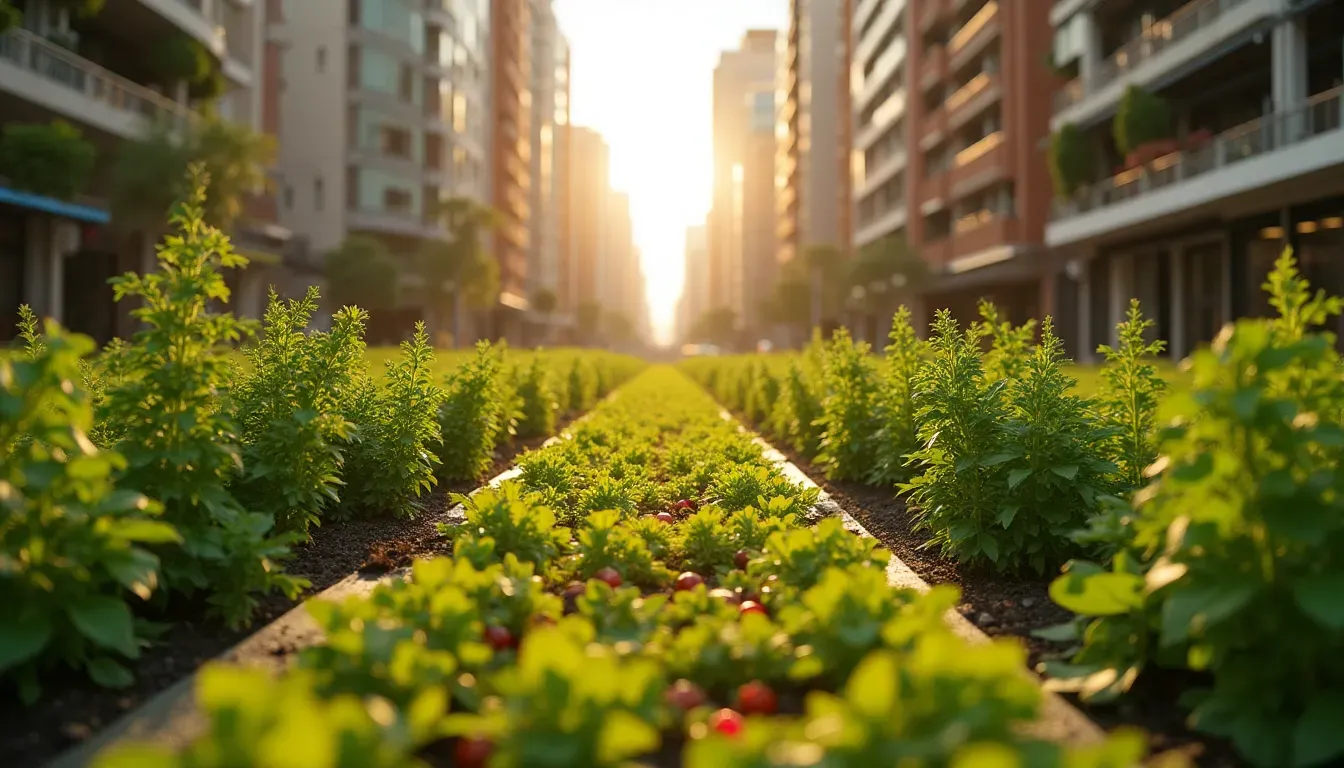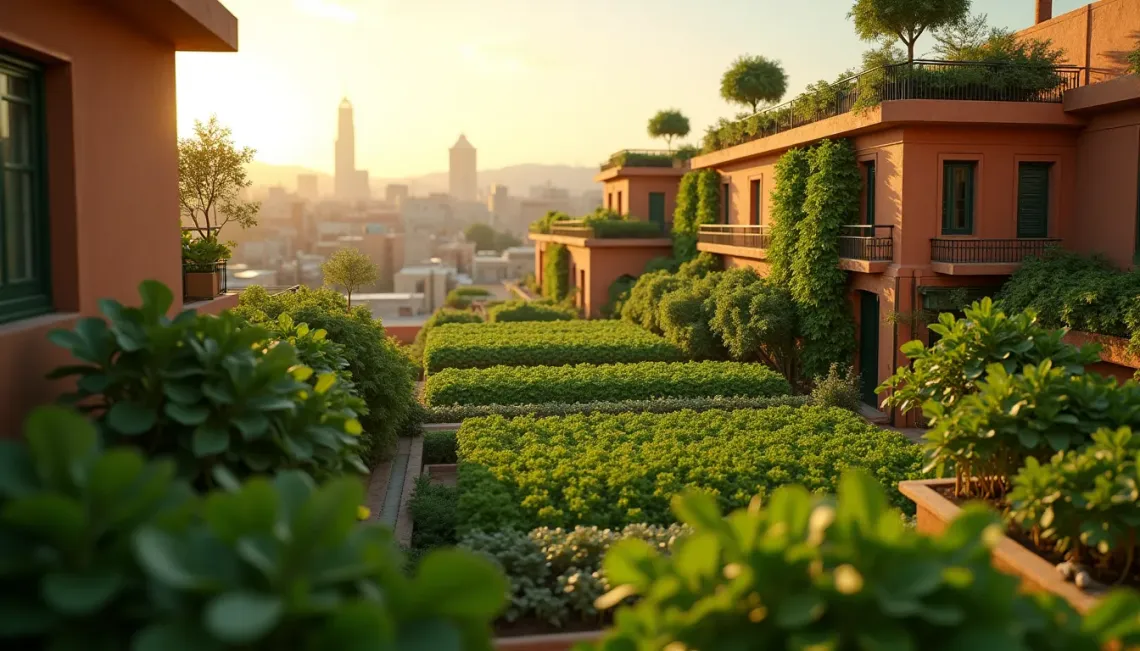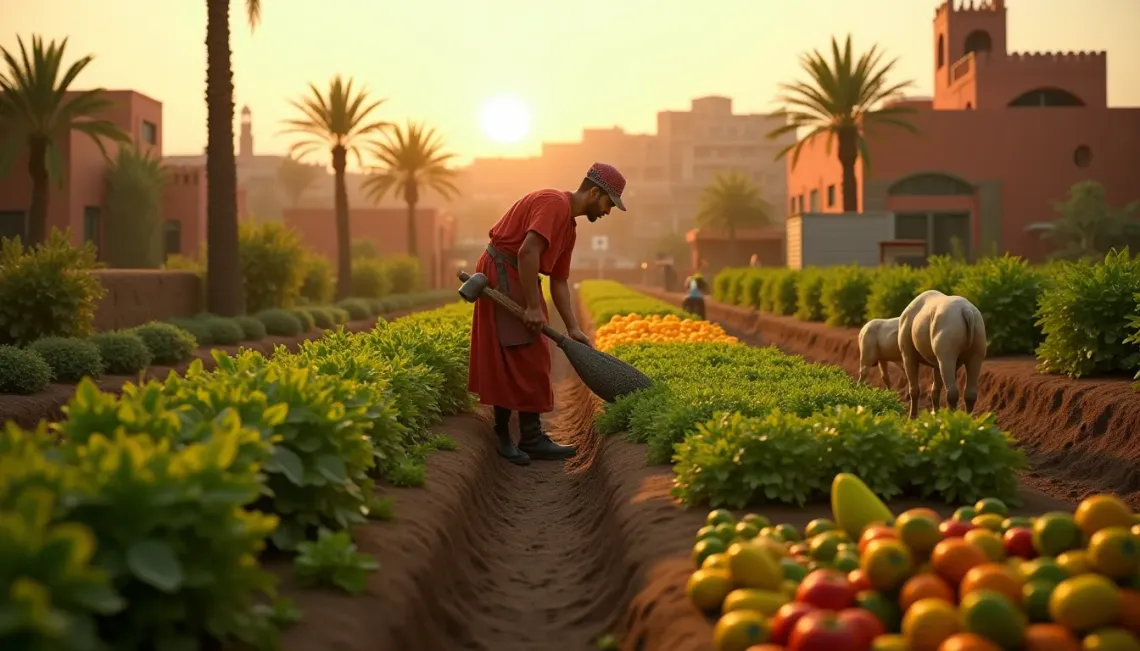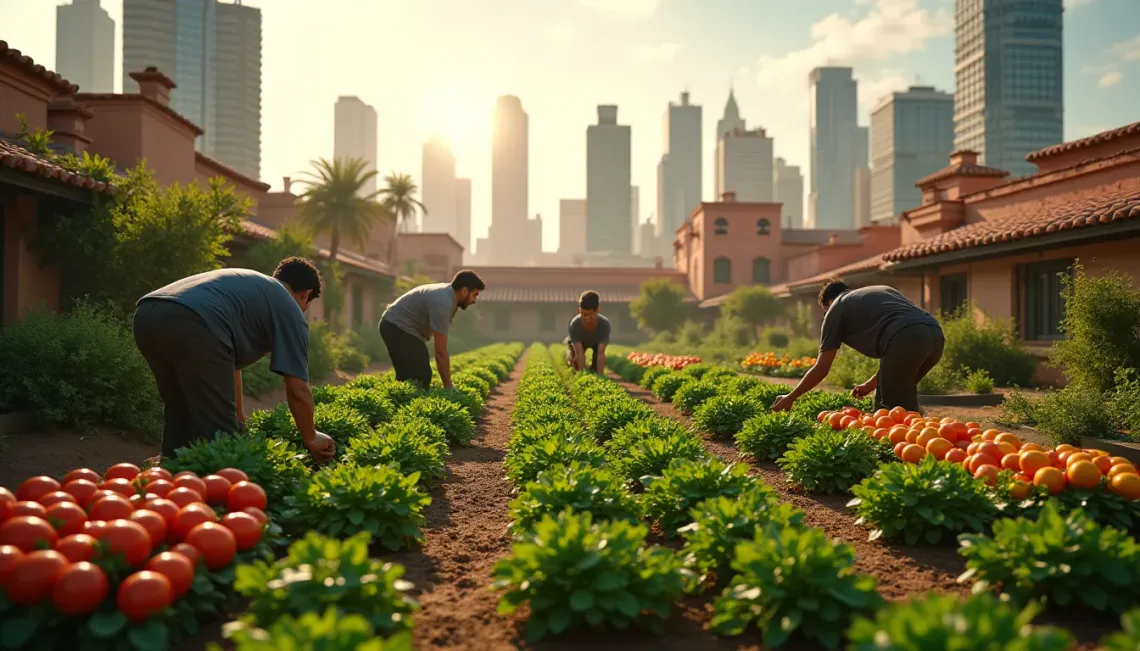Urban farming is revolutionizing how cities manage sustainability, and Morocco is at the forefront with some of the most innovative projects in this domain. By integrating urban agriculture within city bounds, Morocco is not just addressing food security but also championing sustainable agriculture practices. Let's delve into these groundbreaking initiatives and understand their significance in the urban farming landscape.
Innovative Urban Farming Projects in Morocco
Morocco's urban farming initiatives are gaining traction and reactivity across the global environmental and agricultural sectors. These projects exemplify how urban agriculture can be implemented effectively, even in spaces apparently unsuitable for farming.
Agadir's Rooftop Gardens
One of the standout projects in Morocco is the rooftop garden initiative in Agadir. By transforming city rooftops into lush green spaces, the project not only maximizes limited urban space but also helps in reducing urban heat. Residents benefit from fresh produce while contributing to a reduction in the city's carbon footprint.
Casablanca's Hydroponic Systems
In the bustling city of Casablanca, hydroponic systems have been deployed to utilize water efficiently, a crucial consideration in Morocco's often arid climate. This innovative project allows for year-round cultivation of crops, aligning perfectly with the principles of sustainable agriculture. Hydroponic setups also reduce the need for harmful pesticides, promoting a healthier urban environment.
The Impact on Sustainable Agriculture
Urban farming projects in Morocco are pivotal for the evolution of sustainable agriculture. By reducing dependence on imported food and tapping into locally grown produce, cities contribute significantly to sustainability. These projects also foster community engagement, educating residents about sustainable practices and the importance of local food production.
- Increases local food production
- Reduces carbon emissions associated with food transport
- Promotes water conservation through innovative techniques
- Encourages community involvement and education
Challenges and Opportunities
While urban farming in Morocco is making strides, challenges such as limited space, water scarcity, and financial constraints remain. However, these obstacles present opportunities for new technology development and collaboration between governmental bodies and private sectors, further catalyzing growth in urban agriculture.
Related Topics and Further Reading
For those interested in exploring more about urban agriculture as a global trend, consider reading about sustainable urban development and its potential to transform cities worldwide. Another related topic is exploring climate-resilient city planning that integrates agriculture.
As Morocco continues to innovate in urban farming, these projects not only provide immediate solutions for food security but also serve as models for sustainable agriculture practices globally. With urbanization on the rise, Morocco's strategic embrace of urban agriculture underscores its commitment to sustainability and its role as a leader in innovative agricultural solutions.




